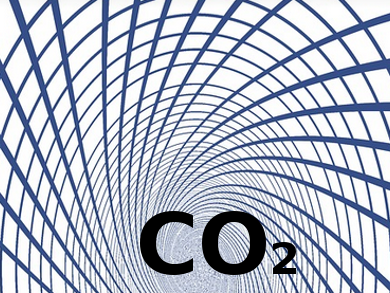Carbon dioxide is considered to be the most abundant greenhouse gas. The most common method to reduce atmospheric CO2 is permanent underground disposal. A promising alternative to CO2 storage is carbon fixation and recycling via catalytic chemical conversion of CO2 into reusable materials.
Yanli Zhao, Nanyang Technological University, Singapore, and colleagues have developed a highly porous metal-organic framework (MOF) that exhibits high CO2 adsorption. The MOF was synthesized by solvothermal reaction of Cu(II) ions and an acrylamine containing tetracarboxylate ligand. Here, both the unsaturated copper sites and amine rich ligand are CO2-philic which increases the MOFs CO2 affinity.
The researchers investigated the MOF’s ability to trap carbon via chemical CO2 conversion. The MOF showed efficient and selective CO2 catalytic cycloaddition with small epoxides, e.g., propylene oxide or butylene oxide, yielding cyclic carbonates valuable in pharmaceutical and electrochemical industries.
- Highly Effective Carbon Fixation via Catalytic Conversion of CO2 by an Acylamide-Containing Metal-Organic Framework,
Pei-Zhou Li, Xiao-Jun Wang, Jia Liu, Hui Shi Phang, Yongxin Li, Yanli Zhao,
Chem. Mater. 2017.
DOI: 10.1021/acs.chemmater.7b03183



